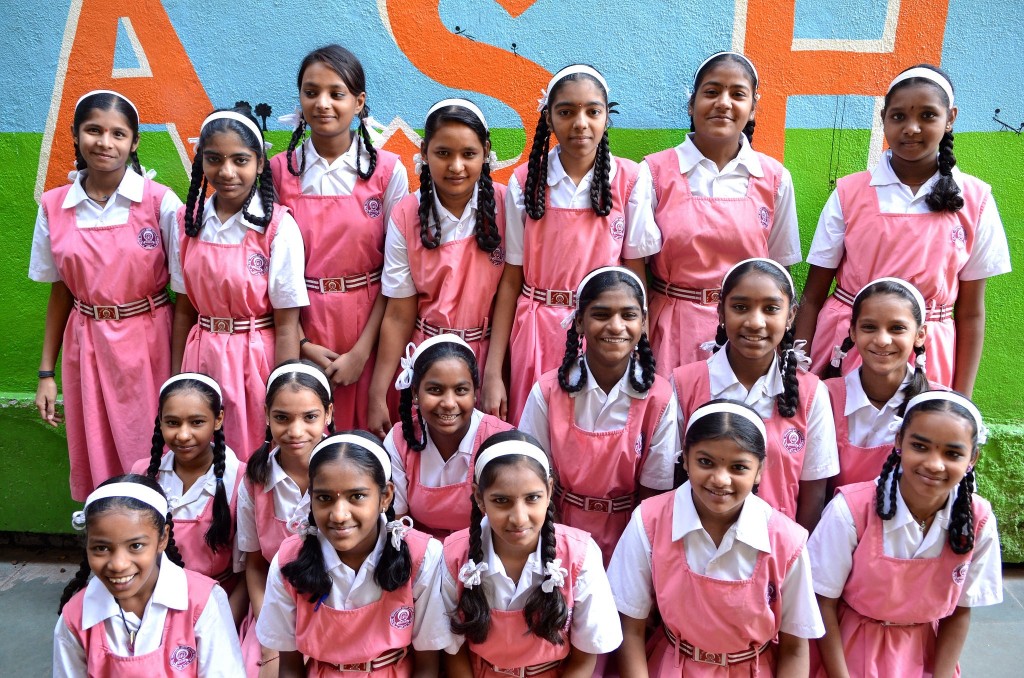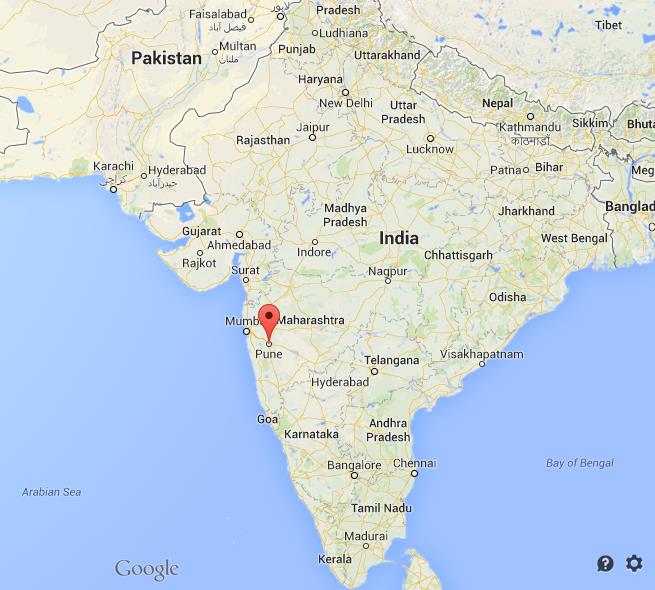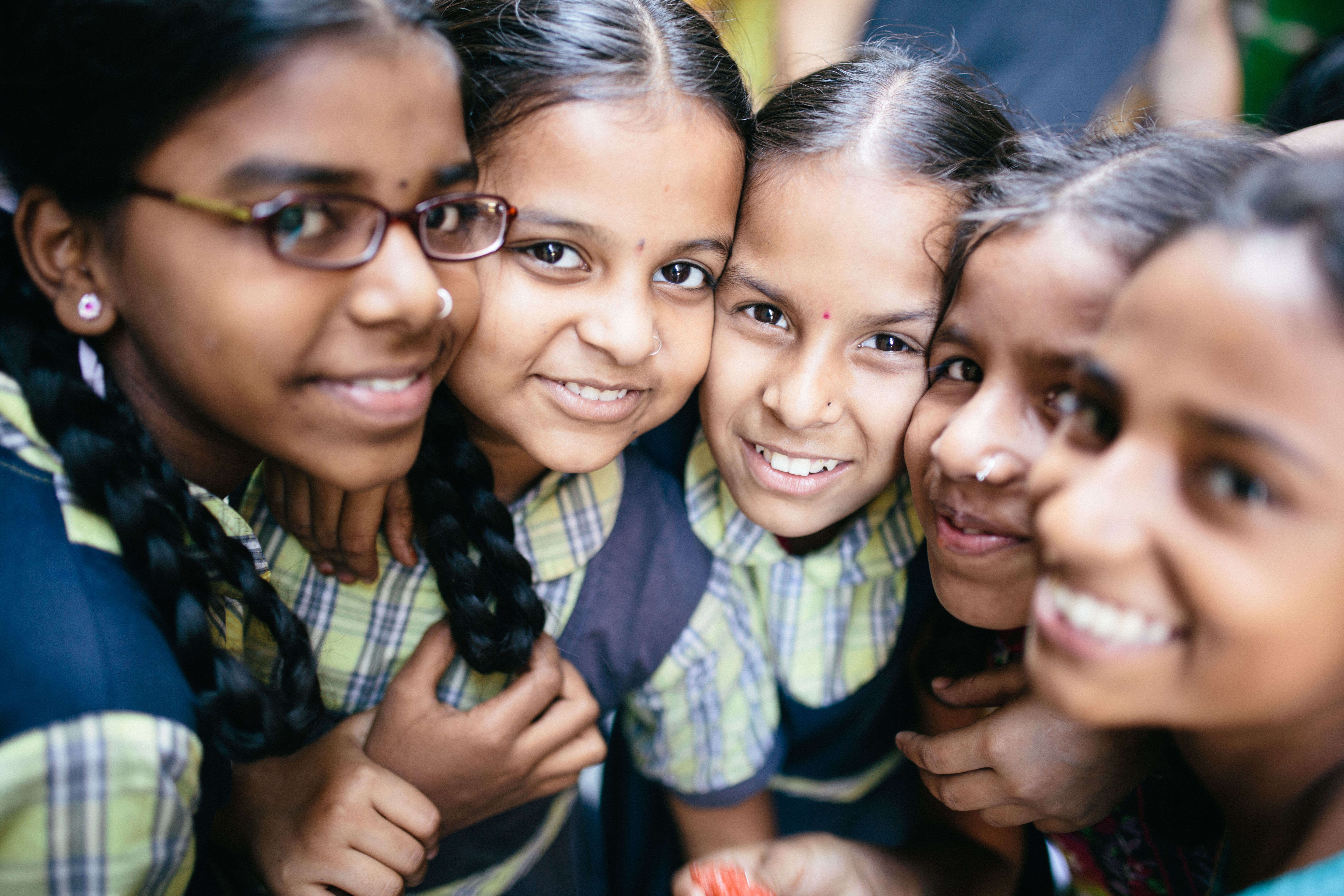
Mission
The Ashraya Initiative for Children (AIC) is dedicated to improving the lives and shaping the futures of vulnerable children in Pune, India by advancing educational opportunities, nurturing holistic development, and building healthy, empowered communities.
Life Challenges of the Women Served
AIC works with two Denotified Tribe (DNT) communities, the Waghris and Sikligars, in Pune, India. National Geographic recently referred to the DNT to as “the biggest human rights crisis you’ve never heard of.” Unlike other tribal populations in India, Denotified Tribes were legally criminalized by the government and their members were classified as “criminal by birth” under the British Government’s Criminal Tribes Act of 1871. For decades, people were rounded up, harassed, arrested, extorted and even killed with impunity under this Act. Though the Criminal Tribes Act was repealed in1952, a new Habitual Offenders Act was enacted in its place the same year. These complicated legal classifications since 1871 have kept the Waghris and Sikligars on the margins of Indian society.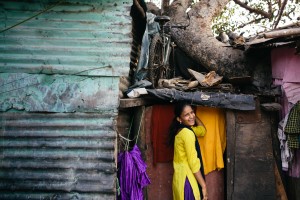
With the prejudices they face and a lack of government aid, most of the Waghris and Sikligars live in abject poverty and remain profoundly disadvantaged. In these slums, it is not uncommon for extended families of 10 or more to live on a collective household income of less than $2 USD per day. Typical housing consists of one- or two-room structures made of corrugated metal, with illegally tapped electricity connections, outdoor communal taps that provide water for only a few hours each day, and overcrowded public toilet blocks.
It is well-documented by UNICEF, the National Human Rights Commission of India, and many others that tribal women and girls are at increased risk of domestic and sexual violence, trafficking, poor nutritional and health status, underage marriage, and a myriad of other factors that threaten their wellbeing. Essentially, girls and women in the DNT community context are “the marginalized within the marginalized.” The girls of the Waghri and Sikligar face tremendous challenges, including high drop-out rates in secondary school, child marriage, early motherhood, domestic violence, unemployability, social and emotional health concerns, and an overall lack of familial support and public awareness of their struggles. Education for girls and outside employment for women has been rejected until recently.
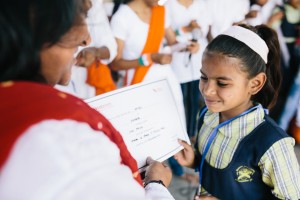 Beginning in sixth or seventh standard (grade), AIC’s girls are at heightened risk for dropping out or being pulled out for marriage. At a recent Mother-Baby class discussion at AIC, one mother declared that she didn’t believe that girls should study beyond standard (grade) 10, “because they would become arrogant and too exposed to the outside world and nobody will want to marry them.” This example highlights, many parents believe that education is not merely considered a positive but non-essential thing; rather, they fear it can actively tarnish their daughter’s personality and decimate her marriage prospects.
Beginning in sixth or seventh standard (grade), AIC’s girls are at heightened risk for dropping out or being pulled out for marriage. At a recent Mother-Baby class discussion at AIC, one mother declared that she didn’t believe that girls should study beyond standard (grade) 10, “because they would become arrogant and too exposed to the outside world and nobody will want to marry them.” This example highlights, many parents believe that education is not merely considered a positive but non-essential thing; rather, they fear it can actively tarnish their daughter’s personality and decimate her marriage prospects.
Girls from Denotified Tribe communities like the Waghris and Sikligars lack positive role models from within the community to allow them to envision different futures for themselves. Most of their mothers were married by early adolescence (age 12 – 13 was the norm for the previous generation of Sikligar adults, and 14 – 15 was considered standard and acceptable in the Waghri community), and over half of all adults do not even have the most basic degree of literacy to be able to sign their own names. Sikligar women are not permitted to work outside of the house (the only exception to this known to AIC is an AIC employee) and are generally confined to the house.
The Project
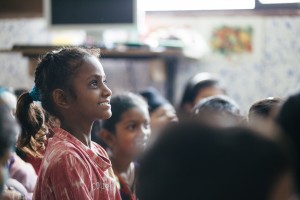 AIC’s Trailblazing Girls Project aims to help girls from Denotified Tribe communities in India pave the way toward brighter futures through academic support, extracurricular activities and leadership opportunities, professional skills development and increasingly supportive home and community environments.
AIC’s Trailblazing Girls Project aims to help girls from Denotified Tribe communities in India pave the way toward brighter futures through academic support, extracurricular activities and leadership opportunities, professional skills development and increasingly supportive home and community environments.
The Trailblazing Girls Project piggybacks off of AIC’s Education Outreach Program – which provides comprehensive support services to first-generation learners from the Waghri and Sikligar DNT communities – by enhancing existing service provision, expanding to all girls in the Education Outreach Program, and enriching the girls’ learning and growing experience through a diverse set of activities and opportunities.
The Trailblazing Girls Project will directly and significantly impact 110 girls in the first year (number of female students enrolled at AIC) and 120 girls in the second year (current number of girls plus next year’s newly enrolled students) through their participation in the myriad of enrichment activities, leadership opportunities, and interactions with support personnel that would be funded by the project. An additional 105 – 110 boys will also benefit from some aspects of the programming that are held on a co-ed basis (extracurricular opportunities, technology skills trainings, etc), and will also benefit from participation in special events and engagement activities, as well as general exposure to positive messaging relating to gender equality in education, employment and opportunity.
By participating in teacher training workshops in collaboration Teach for India, AIC anticipates meaningfully engaging with up to 50 local TFI fellows. The average TFI fellow teaches 27 students, therefore an estimated 1,350 students (approximately 675 girls) will benefit indirectly. Approximately 250 parents and community members (approximately 170 women) will indirectly benefit from attending annual events.
The Trailblazing Girls Project aims to prepare AIC’s girls for successful futures and more empowered lives. The primary goals of the project are to improve educational outcomes, encourage self-expression and empowerment, promote eventual economic self-sufficiency and encourage home and community environments that are conducive to success.
The project will:
- Increase services for girls who are struggling academically while also providing support for girls who have been identified as exceptionally promising students.
- Provide ongoing support and mentorship for girls pursuing junior college and university admissions as well as those opting for vocational training programs.
- Employ a trained clinical counselor for individual counseling, group sessions and family counseling, facilitate the development of a formal girls’ leadership body and provide an annual retreat for girls in the leadership body to build peer-to-peer support and engage in teambuilding activities.
- Offer a monthly guest speaker series to promote positive female role models.
- Offer local field trips and outings to expose AIC’s girls to opportunities and resources beyond their slum communities.
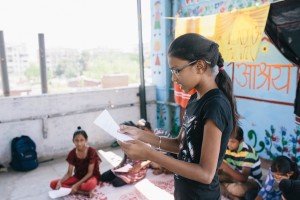
- Expand and promote several ongoing extracurricular offerings run by paid teachers and enhance existing and future activities run by volunteers.
- Develop relevant professional and technical competencies through bi-weekly computer classes for girls at AIC’s newly inaugurated computer lab and expand current classes so that all girls in standards (grades) 1 and higher will have access to the technology tools they need for success.
- Host parental engagement days at the Education Centre where parents attend and participate in activities with their children, and host special events for International Literacy Day, Children’s Day, Day of the Girl Child, etc., to showcase AIC girls’ talents and achievements.
Number of women and girls served by project:
Year 1- Direct: 110 Indirect: 845
Year 2- Direct: 120 Indirect: 845
Sustainable Development Goals
![]()
![]()
![]()
![]()
Questions for Discussion
- What do you think about the concept of “criminal at birth?”
- How can education combat the stigma of being a Denotified Tribe?
- Why is an emphasis on self-expression and empowerment such an important part of this project’s mission?
How the Grant Will be Used
DFW’s donation of $48,700 over two years funds two part-time remedial support teachers, one college guidance counselor, one clinical counselor and one computer teacher. The grant also funds classes and activities to promote self-esteem, creative expression, nurture talent and leadership skills, and allow the girls to try out some new areas of interest. Retreats and excursions will allow girls to explore, build camaraderie and develop confidence. Funding for outreach and workshops supports the family and community outreach component of the project through events, workshops and key stakeholder engagement.
Why We Love This Project/Organization
We love this project because of its holistic approach to working with marginalized communities, emphasis on cultural change and evidence of impact.
Evidence of Success
In 2005 when AIC started its work in Pune, not a single member of either the Waghri or Sikligar community in Yerwada had graduated from secondary school. Community members estimate that around 40 percent of school-aged children had been registered in nearby schools, however only 15 – 20 percent were attending with even minimal regularity. None had access to any form of external academic support, in an education system that all but requires participation in the private tutoring industry to succeed in school. Thus, even those children who attended school were at a distinct disadvantage when compared to their peers.
In 2009, the first child from the Waghri community – a girl from AIC’s Education Outreach Program – successfully passed her standard 10 exams, which represented a milestone moment for the community and AIC. In the six years since, 30 more children have passed their standard 10 exams; 16 more (10 girls) took the exams in March 2016. These are encouraging numbers for two communities with a combined population that hovers around 600.
Voices of the Girls
“In the Waghri community, all parents say to girls that they can’t learn or go to school. They have to stay home and do work. But my mother thinks different. She always says to study and not to do work … I and my sisters are so lucky that we have got parents like my mother and father. Other girls are not that lucky. Our community feels that boys have that ability and girls can’t do jobs. They think like that. But I will show them.” – Ashwini, AIC Beneficiary
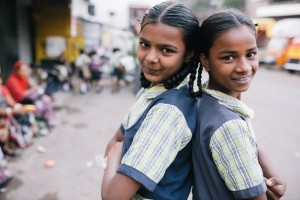 “At AIC I work and read and write and do maths and English. Sometimes we do activities like dancing. And we eat lunch. I want to be a doctor because I want to make people better.” – Anjali, AIC Beneficiary
“At AIC I work and read and write and do maths and English. Sometimes we do activities like dancing. And we eat lunch. I want to be a doctor because I want to make people better.” – Anjali, AIC Beneficiary
“Since I have three siblings, my parents were not able to put me in a good school and they even said that I could not continue school because they could not give money for the school fees. So when AIC came, my life took a different turn. I started going to a private school. Among the Waghris teaching is like, not their cup of tea. They don’t teach girls. They call names if a girl is going to school, like she is doing something wrong. My mother’s dream was that I should learn and be something. My mother wants others to see that girls can also learn and they can be something. She wants me to be a role model for other kids to show that girls are equal to boys and even they can do something as boys can do.” – Smita, AIC Beneficiary
About the Organization
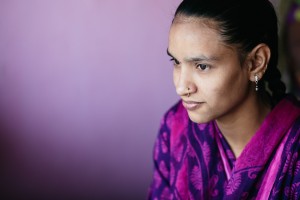 Ashraya Initiative for Children was founded in 2004 by seven university students from around the world who had been high school classmates in India. Although the original goal of the organization was to open a residential home for orphaned street children, the recurring observation that many local street children belonged to the same marginalized tribal communities led to the evolution of AIC’s mission toward the broader goal of providing opportunities, resources, and support for vulnerable children from the slums and streets of Pune.
Ashraya Initiative for Children was founded in 2004 by seven university students from around the world who had been high school classmates in India. Although the original goal of the organization was to open a residential home for orphaned street children, the recurring observation that many local street children belonged to the same marginalized tribal communities led to the evolution of AIC’s mission toward the broader goal of providing opportunities, resources, and support for vulnerable children from the slums and streets of Pune.
AIC’s core programs were developed and expanded organically between 2005 and 2008 based on growing needs and priorities, expressed community aspirations and assets, and an attempt to more deeply address the roots of the issues that affect vulnerable children’s lives in meaningful, collaborative ways. AIC is a registered non-profit corporation in the United States, Austria, the United Kingdom, and India.
Where They Work
AIC provides services to two urban slum communities in Pune, India. Pune is located in the state of Maharashtra on India’s western coast. The population in Pune city in 2011 was three million, with an urban/metropolitan area population of about five million. Maharashtra is one of India’s most prosperous states. However, while it is home to some of its wealthiest citizens, it also includes some of the country’s poorest. One in four women in Maharashtra has no formal education. These low female literacy rates make girls more vulnerable to early marriage. Almost 18 percent of girls in Maharashtra are married before age 18.
India itself is located in Southern Asia, bordering the Arabian Sea and the Bay of Bengal, between Burma and Pakistan, covering an area slightly more than one-third of the size of the U.S. The population is 1,251,695,584 (July 2015 estimate) with 32.7 percent of the population living in urban areas. Life expectancy at birth for the total population is 68.13 years, with the median age being 27.3 years. The maternal mortality rate is 174 deaths/100,000 live births, and the infant mortality rate is 41.81 deaths/1,000 live births. The mother’s mean age at first birth is 19.9. The country’s literacy rate (age 15 and over who can read and write) is 71.2 percent of the total population. Of that, 81.3 percent are male and 60.6 percent are female. India’s diverse economy encompasses traditional village farming, modern agriculture, handicrafts, a wide range of modern industries and a multitude of services. Slightly less than half of the work force is in agriculture. Services are the major source of economic growth, accounting for nearly two-thirds of India’s output with less than one-third of its labor force.
Sources:
http://www.census2011.co.in/, Unicef, CIA World Factbook
A Closer Look at Denotified Tribes
In an attempt to control crime in Colonial India, the British government branded a large number of Indian castes and communities as criminal based on their so-called “criminal tendencies,” giving the police wide powers to arrest them, control, and monitor their movements. Under a series of laws starting with the Criminal Tribes Act of 1871, these tribes were “notified” that they were considered “criminal at birth.” This led to the creation of settlements of these tribes to enable the police to exercise constant surveillance; causing considerable harassment and hardships to these castes and communities and adversely affecting their lifestyles and sustenance.
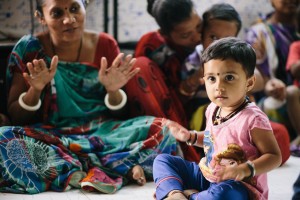 After India achieved independence in 1947, the Criminal Tribes Act of 1871 was reviewed and eventually repealed in 1952. As a result, all the castes and communities which were notified under the Act were “denotified,” rescinding their criminal label. Hence the name “Denotified Tribes.”
After India achieved independence in 1947, the Criminal Tribes Act of 1871 was reviewed and eventually repealed in 1952. As a result, all the castes and communities which were notified under the Act were “denotified,” rescinding their criminal label. Hence the name “Denotified Tribes.”
However, although these tribes were no longer considered criminal, many were not included as Scheduled Castes, Scheduled Tribes or Other Backward Classes, and thus did not receive birth certificates, caste certificates or any other kind of identification. They were not recognized by the government to receive reservations (a form of affirmative action) in universities and government enterprises, or material government support such as food rations.
Compounding the difficulties posed by an unsupportive government system is the social stigma that still enshrouds the communities years after the criminal tribe label has been removed. This antisocial legacy of the British rule persists even today and both the police and society treat Denotified Tribes with suspicion.
Source Materials
http://www.academia.edu/4294914/The_Contemporary_Challenges_to_De-Notified_and_Nomadic_Tribes_of_Maharashtra_in_India, AIC,
Report Volume – I June 30, 2008

